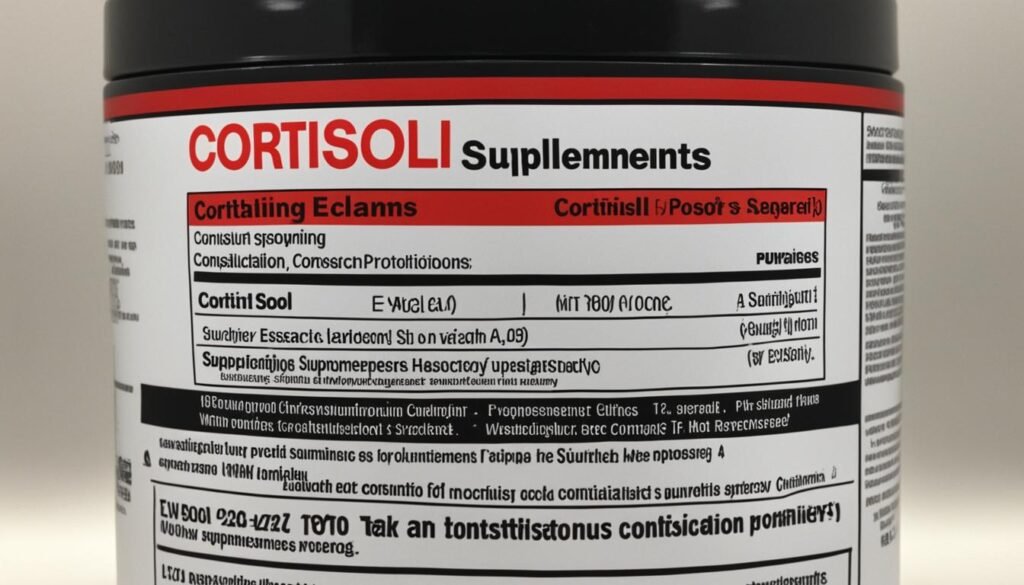Stress has a significant impact on our overall well-being, including our ability to manage our weight. The link between stress and weight gain is well-established, with stress often leading to unhealthy coping strategies such as stress eating and emotional eating. However, by implementing healthy coping strategies and making mindful choices, it is possible to manage stress without gaining weight.
Managing stress is essential for maintaining a healthy lifestyle. When we experience stress, our bodies release cortisol, also known as the stress hormone. Cortisol can increase our appetite, especially for high-calorie foods, and slow down our metabolism, making it more difficult to lose weight. Additionally, stress can trigger unhealthy behaviors like stress eating and choosing fast food options.
To break the cycle of stress and weight gain, it is important to focus on stress reduction techniques and healthy habits (check out my post on stress reduction techniques here). Regular exercise is known to reduce stress levels and promote overall well-being. Incorporating mindfulness practices, such as mindful eating and journaling, can help us become more aware of our eating habits and make healthier choices.
In this article, I will explore the relationship between stress and weight gain, the role of cortisol in weight gain, unhealthy behaviors triggered by stress, and strategies to break the cycle of stress and weight gain. We will also discuss the importance of sleep and exercise in stress management, maintaining healthy habits during stressful times, the connection between body image and stress, and how to be cautious of unsupported claims when it comes to managing stress and weight.
Join me in discovering effective ways to cope with stress without gaining weight and achieving a healthier lifestyle.
Key Takeaways:
- Stress can significantly impact our ability to maintain a healthy weight.
- The release of the stress hormone cortisol can lead to unhealthy stress-induced behaviors.
- Implementing healthy coping strategies and making mindful choices can help manage stress without gaining weight.
- Regular exercise and mindfulness practices play a vital role in stress reduction and weight management.
- Managing stress and maintaining a healthy weight require a holistic approach, including self-care and professional support when needed.
The Relationship Between Stress and Weight Gain
When you’re stressed, your body releases cortisol, the stress hormone that can impact your metabolism and contribute to weight gain. Cortisol affects your appetite, especially for high-calorie foods, and can also slow down your metabolism, making it more challenging to lose weight.
Stress can lead to unhealthy stress-induced behaviors, such as stress eating, emotional eating, and choosing fast food options. These behaviors often result from seeking comfort or relief from stress, but they can be detrimental to your weight management goals.
High stress levels can disrupt your healthy routine, causing you to turn to food as a coping mechanism. While it may provide temporary relief, it can contribute to weight gain and hinder your overall well-being.
The relationship between stress and weight gain is complex, but it’s important to recognize that managing stress is crucial for maintaining a healthy weight. By finding alternative ways to cope with stress and engaging in healthy behaviors, you can effectively combat stress-induced weight gain (check out my post on stress-induced weight gain here).
Implementing stress reduction techniques, such as regular exercise, meditation, or deep breathing exercises, can help reduce cortisol levels and mitigate the effects of stress on your weight. It’s also important to establish a balanced and nutritious diet, focusing on whole foods and avoiding excessive consumption of unhealthy comfort foods.
Effects of Stress on Eating Habits
- Stress Eating: Under stress, some individuals turn to food as a source of comfort or relief. This can lead to consuming excess calories, especially from high-sugar and high-fat foods, which contribute to weight gain.
- Emotional Eating: Emotional eating is another response to stress, where individuals use food to reduce negative emotions or seek emotional comfort. This habit can result in overeating and unhealthy food choices.
- Fast Food Choices: When stressed, people often opt for convenient fast food options due to time constraints or as a means of indulgence. These foods are typically high in calories, unhealthy fats, and added sugars, contributing to weight gain.
Breaking the Cycle of Stress-Induced Weight Gain
To break the cycle of stress and weight gain, it’s essential to incorporate healthy coping mechanisms and behaviors into your lifestyle:
- Practice mindful eating by paying attention to your hunger cues and choosing nourishing foods.
- Engage in regular physical exercise to manage stress, boost metabolism, and promote overall well-being.
- Seek support from friends, family, or professionals who can help you navigate stress and provide guidance on healthier coping strategies.
By addressing stress and adopting healthy habits, you can achieve a balance between your mental well-being and weight management goals.
The Role of Cortisol in Weight Gain
Cortisol is a stress hormone that plays a key role in weight gain. When your body experiences stress, cortisol is released, impacting various metabolic processes and contributing to weight gain. It stimulates the metabolism of fat and carbohydrates, leading to an increase in appetite and cravings for unhealthy foods.
Cortisol also slows down your metabolism, making it challenging to lose weight. This slowdown in metabolism can result in the accumulation of abdominal fat, which is not only aesthetically undesirable but also associated with an increased risk of cardiovascular disease.
To visualize the impact of cortisol on weight gain, consider the following:
| Stress and Cortisol | Effect on Weight |
|---|---|
| High levels of stress leading to increased cortisol production | Promotes fat and carbohydrate metabolism |
| Increased appetite and cravings for unhealthy foods | Contributes to weight gain |
| Slowed metabolism | Makes weight loss difficult |
| Accumulation of abdominal fat | Increased risk of cardiovascular disease |
It is essential to understand and address the role of cortisol in weight gain to effectively manage weight and overall health.
Managing Cortisol Levels
While cortisol is a natural hormone produced by the body, persistent stress can lead to chronically elevated levels. To manage cortisol levels and mitigate its impact on weight gain, consider the following strategies:
- Engage in stress-reducing activities like meditation, deep breathing, and yoga to promote relaxation.
- Maintain a healthy lifestyle with regular exercise, as physical activity can help lower stress levels and improve metabolism.
- Adopt a balanced diet that includes nutrient-rich foods, focusing on whole grains, lean proteins, fruits, and vegetables.
- Get adequate sleep to support hormonal regulation and optimize metabolism.
- Practice mindfulness and engage in activities that bring joy and fulfillment to reduce stress levels.
By incorporating these strategies into your daily life, you can help regulate cortisol levels, manage weight gain, and promote overall well-being.
Unhealthy Behaviors Triggered by Stress

Stress can have a significant impact on our eating habits, sometimes leading to unhealthy behaviors that contribute to weight gain. Two common responses to stress are emotional eating and stress eating, both of which can have negative consequences for our overall health and well-being.
Emotional eating is when we turn to food as a way to cope with or manage our emotions. This often involves eating large quantities of unhealthy, comfort foods that are high in calories, fat, and sugar. The release of cortisol, the stress hormone, can increase our cravings for these types of foods, making it difficult to resist the temptation.
Stress eating refers to the tendency to eat in response to stress, even when we’re not necessarily hungry. This can lead to mindless eating, where we consume food without paying attention to the physical sensations of hunger and fullness. In these instances, we may turn to fast food or convenient, unhealthy options that provide instant gratification and comfort.
Additionally, stress can also disrupt our regular eating patterns, leading to skipping meals. When we’re stressed, we may forget to eat or intentionally skip meals as a way to cope with overwhelming emotions or a lack of appetite. However, skipping meals can result in irregular eating patterns and potentially contribute to weight gain.
It’s important to recognize and address these unhealthy behaviors triggered by stress in order to maintain a healthy weight and overall well-being. Finding alternative coping mechanisms and implementing stress management strategies can help break the cycle of stress and unhealthy eating habits.
Strategies to Break the Cycle of Stress and Weight Gain
Incorporating stress relief strategies and healthy habits is crucial to break the cycle of stress and weight gain. By adopting these practices, individuals can manage their stress levels and maintain a healthy weight.
Regular Exercise for Stress Reduction and Weight Management
Engaging in regular exercise plays a vital role in reducing stress and managing weight. Physical activity stimulates the release of endorphins, which are known as “feel-good” hormones. These endorphins help improve mood, reduce stress, and promote a sense of well-being.
Exercise also increases energy expenditure, contributing to weight management by burning calories. Whether it’s going for a run, participating in a fitness class, or simply incorporating more movement into daily activities, finding an exercise routine that suits your preferences and goals is essential.
Choosing Healthier Comfort Foods
During times of stress, it’s common to turn to comfort foods for solace. However, opting for healthier alternatives can help manage stress-related weight changes. Instead of reaching for sugary or high-calorie processed foods, choose nutrient-dense options that provide both satisfaction and nourishment.
Here are some examples of healthy comfort foods:
- Fruits and vegetables: Incorporate a wide variety of colorful produce into your meals and snacks for essential vitamins, minerals, and fiber.
- Whole grains: Choose whole grain options like brown rice, quinoa, and whole wheat bread to boost fiber intake and provide sustained energy.
- Lean proteins: Include lean sources of protein such as chicken, fish, tofu, or legumes to support muscle growth and repair.
- Healthy fats: Incorporate sources of healthy fats like avocados, olive oil, nuts, and seeds for satiety and essential nutrients.
Mindful Eating to Manage Stress-Related Weight Changes
Mindful eating involves paying full attention to the eating experience, including the taste, texture, and sensations of each bite. By practicing mindfulness during meals, you can enhance your awareness of hunger and fullness cues, prevent overeating, and make healthier food choices.
Here are some tips for practicing mindful eating:
- Slow down and savor each bite, focusing on the flavors and textures of the food.
- Avoid distractions like screens or multitasking while eating.
- Listen to your body’s hunger and fullness signals, eating until satisfied but not overly full.
- Engage your senses by appreciating the colors, smells, and presentation of your meals.
Keeping a Food Journal and Increasing Water Intake
Keeping track of your food and beverage intake can help foster self-awareness and accountability. By maintaining a food journal, you can identify patterns and triggers associated with stress eating, making it easier to implement healthier choices.
In addition to tracking food, it’s equally important to stay hydrated by increasing water intake. Drinking enough water not only promotes overall health but can also help prevent excessive snacking and aid in weight management.
Remember, a comprehensive approach that combines stress relief techniques, exercise, mindful eating, and adequate hydration is key to breaking the cycle of stress and weight gain.
The Importance of Sleep and Exercise for Stress Management

Getting enough sleep and regular exercise are crucial for effectively managing stress levels and maintaining a healthy lifestyle. Sleep deprivation can contribute to increased stress and weight gain, while exercise helps lower stress levels and boost overall well-being. Let’s explore how sleep and exercise play essential roles in stress management.
The Impact of Sleep Deprivation on Stress and Weight Gain
Sleep deprivation disrupts the balance of hormones that regulate appetite, leading to increased calorie intake and cravings for high-calorie foods. When we don’t get enough sleep, our hunger hormones, such as ghrelin, increase, while our satiety hormones, like leptin, decrease. As a result, we tend to consume more food, especially unhealthy options, which can contribute to weight gain and negatively affect our stress levels.
The Role of Exercise in Stress Management
Regular exercise is a powerful stress reliever. Engaging in physical activity stimulates the production of endorphins, known as “feel-good” hormones, which can elevate mood and promote relaxation. Exercise also helps improve metabolism, burn calories, and reduce stress hormone levels, such as cortisol. By incorporating exercise into our daily routine, we can effectively manage stress and support a healthy weight.
Here is a table highlighting the benefits of sleep and exercise for stress management:
| Sleep | Exercise |
|---|---|
| Regulates appetite-regulating hormones | Boosts endorphin production |
| Reduces cravings for high-calorie foods | Improves metabolism |
| Supports healthy weight management | Reduces stress hormone levels |
By prioritizing sleep and incorporating regular exercise into our lives, we can effectively manage stress levels, reduce the risk of weight gain, and promote overall well-being.
Maintaining Healthy Habits During Stressful Times
During stressful periods, it is crucial to prioritize tasks and activities that contribute to overall well-being. By focusing on relaxation techniques, consuming quality foods, and making time for regular exercise, we can effectively manage stress and prevent weight gain.
1. Prioritize Tasks and Activities
When faced with multiple demands, it is essential to prioritize tasks based on their importance and urgency. Creating a to-do list or using a planner can help organize responsibilities and reduce stress levels. By tackling tasks in a systematic and organized manner, we can maintain a sense of control and prevent stress from accumulating.
2. Practice Relaxation Techniques
Engaging in relaxation techniques can reduce stress and promote a sense of calm. Techniques such as deep breathing exercises, meditation, and yoga can help activate the body’s relaxation response. By incorporating these practices into our daily routines, we can effectively manage stress and prevent it from impacting our overall well-being.
3. Consume Quality Foods
When stressed, it is common to turn to unhealthy comfort foods. However, nourishing our bodies with quality foods is crucial for both physical and mental well-being. Opt for nutrient-dense foods such as fruits, vegetables, whole grains, lean proteins, and healthy fats. These foods provide essential nutrients that support our immune system, boost mood, and improve overall health.
4. Make Time for Regular Exercise
Exercise is a powerful tool for combating stress and maintaining a healthy weight. Engaging in regular physical activity releases endorphins, which are natural mood boosters. Whether it’s going for a brisk walk, practicing a fitness routine at home, or participating in group exercise classes, find an exercise regimen that suits your preferences and schedule.
| Benefits of Prioritizing Healthy Habits During Stressful Times |
|---|
| 1. Improved Stress Management: Prioritizing tasks and relaxation techniques can reduce stress levels and promote a sense of control. |
| 2. Prevention of Weight Gain: Consuming quality foods and engaging in regular exercise prevent weight gain associated with stress-induced behaviors. |
| 3. Enhanced Well-being: Practicing healthy habits during stressful times improves overall physical and mental well-being. |
Body Image and Stress

Poor body image and stress often go hand in hand, creating a negative cycle that can be difficult to break. The pressure to conform to societal beauty standards can lead to feelings of inadequacy and self-doubt, which can contribute to increased stress levels. Conversely, high levels of stress can amplify insecurities and negative body image perceptions.
In order to alleviate the impact of body image issues on stress levels, it is important to embrace self-acceptance and self-compassion. Instead of focusing solely on external appearances and comparing oneself to unrealistic ideals, shifting the focus towards self-care and overall well-being can promote a healthier mindset.
“To love oneself is the beginning of a lifelong romance.” – Oscar Wilde
An effective method to reduce stress and improve body image satisfaction is through mindfulness meditation. By practicing mindfulness, individuals can develop greater self-awareness and acceptance, promoting a positive and compassionate attitude towards their bodies.
It is crucial to emphasize that true health is about more than just the number on the scale. It involves adopting healthy eating habits, engaging in regular exercise, and implementing stress reduction techniques. These practices can enhance overall well-being and contribute to a more positive body image.
Benefits of Self-Acceptance and Self-Compassion:
- Reduced stress levels: Embracing self-acceptance and self-compassion can help alleviate the stress associated with negative body image.
- Improved mental well-being: Focusing on self-acceptance and self-compassion promotes positive thoughts and a healthier mindset.
- Enhanced body image satisfaction: Shifting the focus towards overall health and well-being can lead to greater body image satisfaction.
- Increased self-confidence: Embracing self-acceptance and self-compassion can boost self-esteem and self-confidence.
By prioritizing self-acceptance and self-compassion, individuals can alleviate stress related to body image and cultivate a positive and healthy relationship with their bodies.
Image: A woman looking at her reflection with self-acceptance and self-compassion.
Beware of Unsupported Claims

When it comes to managing cortisol levels and achieving weight loss, it’s important to approach the topic with caution. While there may be numerous claims made by dietary supplements and products promising to lower cortisol and enhance weight loss, it’s vital to consider the evidence backing these claims.
Many of these cortisol supplements have not undergone independent studies published in respected, peer-reviewed medical journals. Without this scientific validation, it becomes difficult to ascertain the effectiveness and safety of these products.
In my professional opinion, the most effective methods for managing elevated cortisol levels and achieving weight loss are through natural means:
- Engaging in regular exercise, such as aerobic activities, strength training, or yoga, to reduce stress and promote hormone balance.
- Following a well-balanced, nutrient-rich diet that includes plenty of fruits, vegetables, lean proteins, and whole grains.
- Adopting relaxation techniques like meditation, deep breathing exercises, or mindfulness practices to help regulate cortisol levels and combat stress.
While dietary supplements and quick-fix solutions may seem tempting, it’s important to prioritize evidence-based approaches to managing stress, cortisol levels, and achieving sustainable weight loss.
By focusing on lifestyle changes and incorporating healthy habits into your daily routine, you can optimize your overall well-being and improve your chances of long-term weight management. Remember, there are no shortcuts when it comes to health and wellness.
What Are Some Effective Ways to Manage Stress Without Gaining Weight?
Managing stress without gaining weight is possible with the right strategies. Engage in regular physical activity to release tension and boost mood. Practice mindfulness through meditation or deep breathing to reduce stress levels. Prioritize healthy eating and avoid emotional eating to maintain a balanced weight while managing stress.
Conclusion
Coping with stress without gaining weight requires a comprehensive approach that encompasses stress management techniques, regular exercise, healthy eating, and self-care. By prioritizing self-care and embracing a healthy lifestyle, individuals can break the cycle of stress and weight gain, leading to improved overall well-being. Seeking professional support when necessary can provide additional guidance and support on the journey towards stress reduction and weight management.
Managing stress levels through stress reduction techniques such as mindfulness, meditation, and deep breathing exercises can help effectively combat the negative impact of stress on eating habits. Incorporating regular exercise into daily routines can not only reduce stress, but also support weight management by boosting metabolism and improving mood.
When it comes to healthy eating, choosing nutrient-dense foods and practicing mindful eating can prevent stress-induced overeating and emotional eating. Prioritizing self-care through adequate sleep, relaxation techniques, and engaging in activities that bring joy and reduce stress can further contribute to maintaining a healthy weight.
In conclusion, by adopting a holistic approach to stress management that includes exercise, healthy eating, and self-care strategies, individuals can effectively manage their stress levels and maintain a healthy weight. Embracing a healthy lifestyle and seeking professional guidance when needed are key to achieving optimal well-being and long-term success in managing stress and weight. Start implementing these strategies today and embrace the benefits of a healthy, balanced lifestyle.




